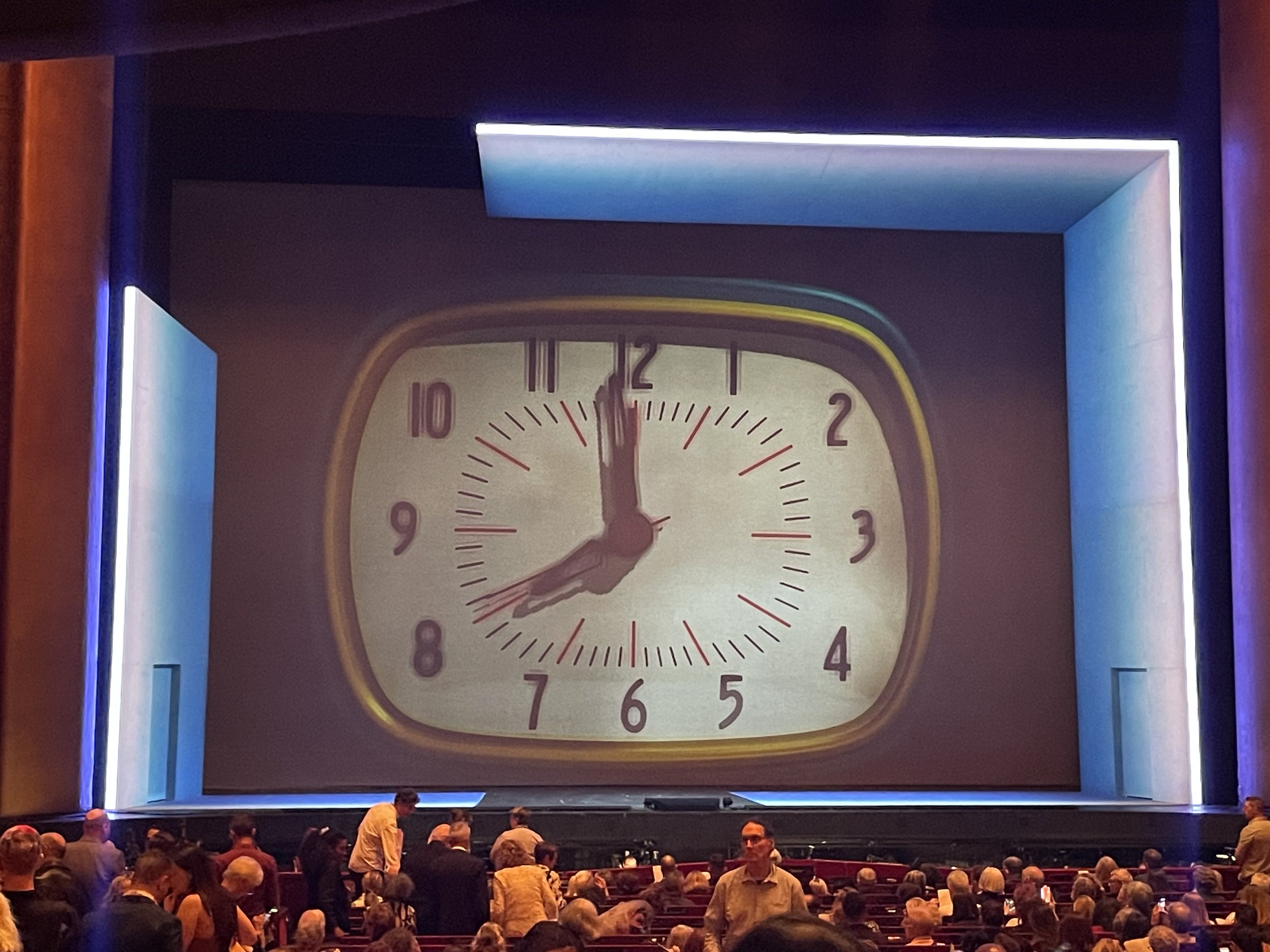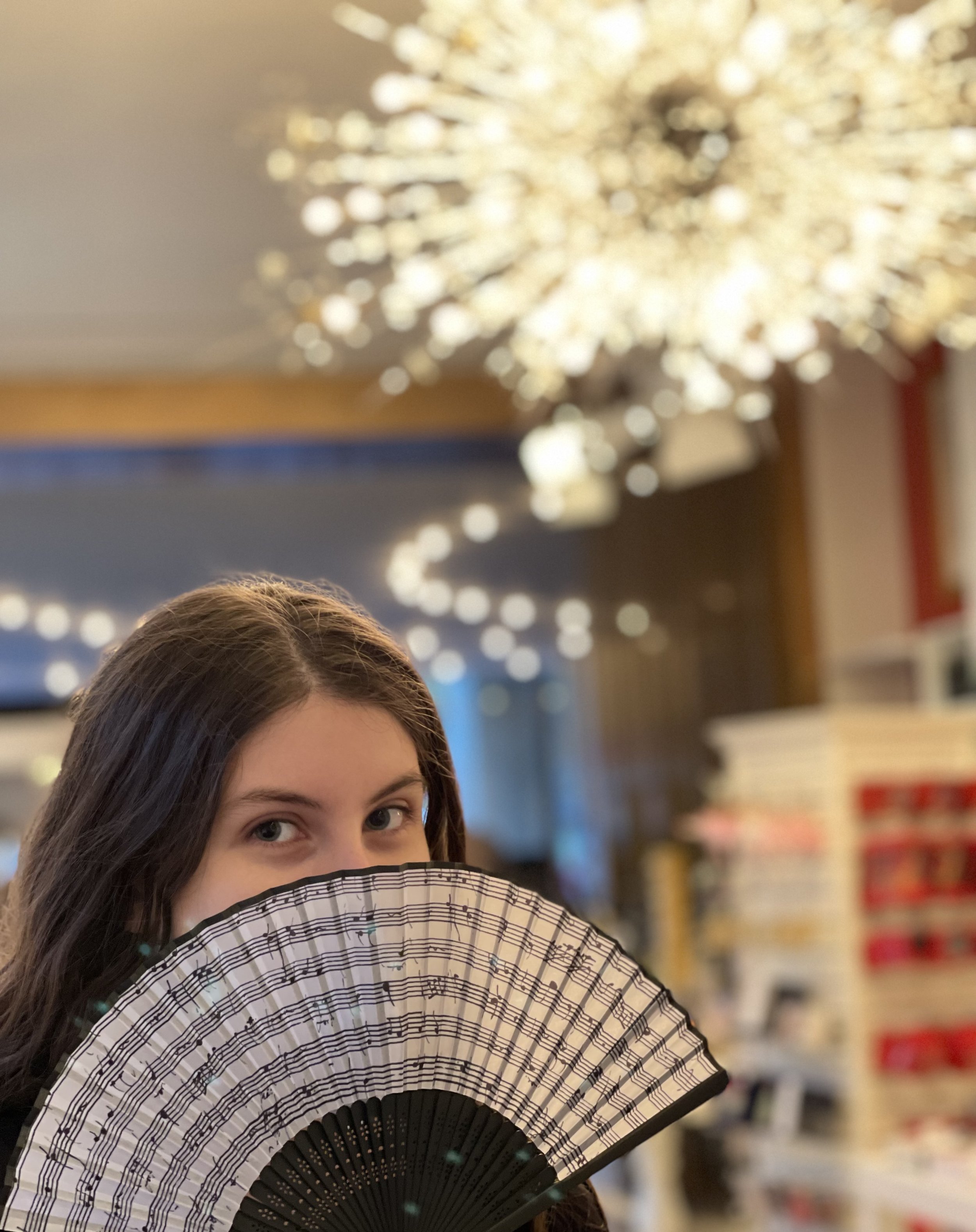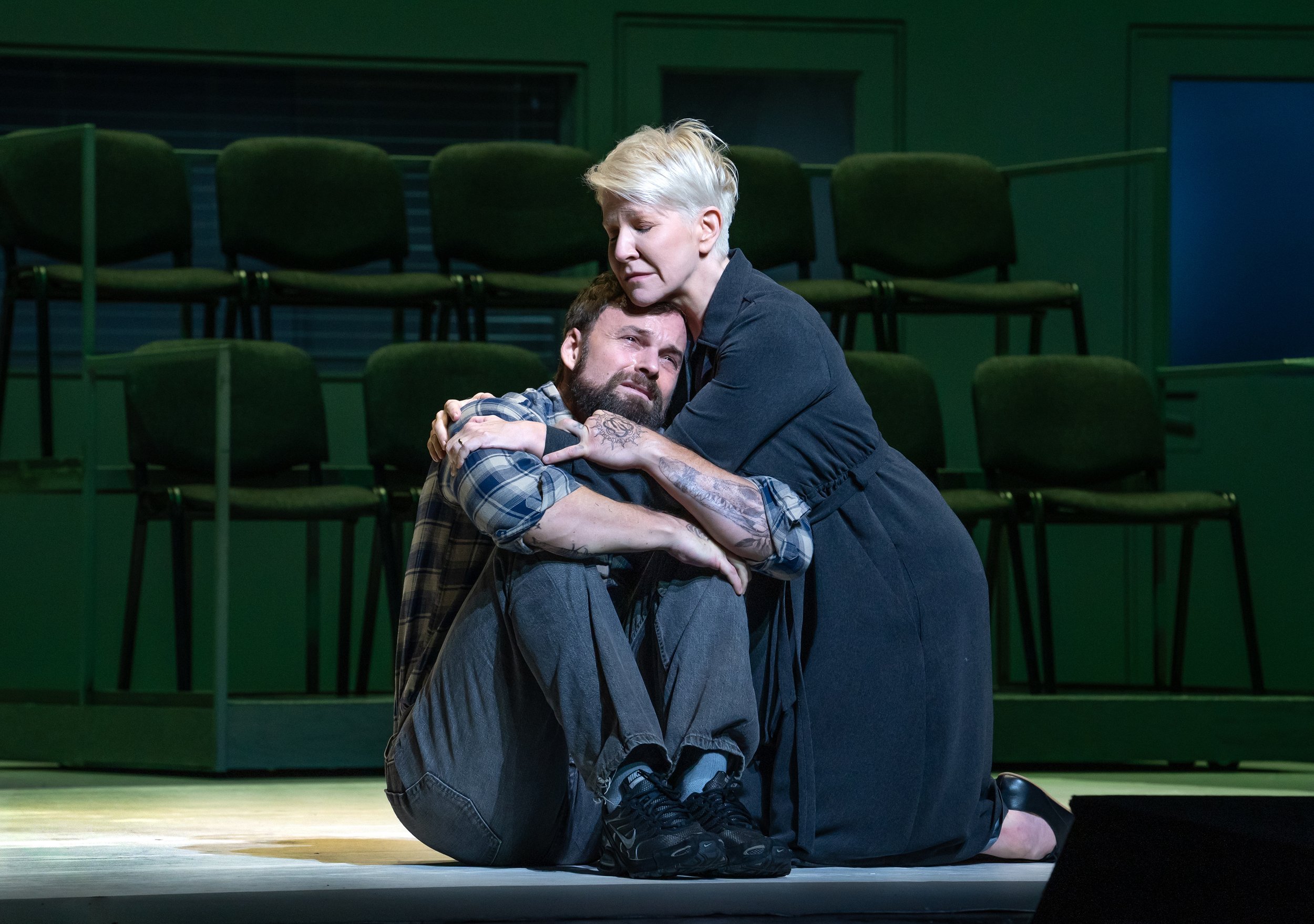Opera Onscreen: Crying and Renée Fleming in Margaret (2011)
Opera has been making appearances in movies for nearly 100 years. My favorite example of opera in film is perhaps the most obscure: Kenneth Lonergan’s psychological drama Margaret (2011). Near the end of the film, Anna Paquin’s character, Lisa Cohen, attends a performance of Les Contes d’Hoffmann at the Met with her estranged mother, Joan, played by J. Smith-Cameron. By the closing bars of the Act III Barcarolle, sung by Renée Fleming and Susan Graham, Lisa has broken down in tears and reconciled with her mother.
First, this poignantly illustrates the power of opera (and music) to transform, connect, and heal. Filmmakers have been making couples fall in love at the opera in movies such as Moonstruck, Little Women (1994), and Pretty Woman. The connection made (or repaired) in Margaret is different: not romantic love, but the love of a mother for her daughter and of a daughter for her mother. For the whole film, Lisa has been burdened by crushing guilt over indirectly causing a woman’s death, which contributes to her rocky relationship with her mother. The opera helps open up Lisa’s heart and allows for an emotional release, setting the stage for her heartwarming embrace with Joan. “[A]rt is a form of catharsis,” wrote Dorothy Parker in a (typically cynical) poem. Perhaps no art is more cathartic than opera, and this scene perfectly shows this off.
Second, THAT IS EXACTLY HOW I CRY AT THE OPERA! Before I say anything else, there is no one way to cry at the opera, nor one way to feel, and I am comparing the following to me. In Moonstruck, a single glistening tear rolls down Cher’s cheek while watching La Bohème. I do not cry one tear at La Bohème. I cry a river. Julia Roberts’ trying-to-hold-it-in gulps at La Traviata in Pretty Woman are closer, but Paquin goes all in, with full-on sobs and puckered face. At the end of tragic operas, my focus is usually on how to stifle loud sniffles until the applause starts (with mixed results). Paquin makes me feel very seen. Representation matters! Is this how you cry at the opera? Or do you cry elegantly?
Third, this is the first time I’ve seen an onscreen opera performance shown to be actually good. Not just good either, really good. Most of the time, the opera singers in movies can’t act to save their lives and are either stagey or wooden. Added to that, they often have pretty but generic voices. Renée and Susan are not just superstar singers in their prime (Margaret was shot in 2005, despite its 2011 release), but world-class artists, and you can tell here that there’s an actual story going on onstage. The two can convey a world of words and feelings just with “ah-ah, ahh-aaah”. To compare, a performance of the same song features in Roberto Benigni’s Life is Beautiful. The singers are stonily expressionless in despite of the beauty of Offenbach, and they appear to have no idea what they are singing about. No eye contact, no emotion, no chills. (I did love the rest of the movie.)
In the sci-fi action movie The Fifth Element, the alien Plavalaguna gives a concert with an egregious mashup of Lucia di Lammermoor and technopop. Setting aside the technopop, no attempt whatsoever is made to convey the romantic delusions of an abused woman driven to homicidal insanity. Instead, we get great-diva-am-I and you-are-all-in-my-thrall arm and hand flourishes. Plavalaguna’s actress does not do her own singing, which is done by Inva Mula. Mula’s vocals are pristine, reaching some astounding high notes, but the overacting makes the aria’s meaning go right over our heads. I will add that the blame for the exaggerated theatricality should go to the director, Luc Besson, rather than the actress, but it’s disappointing either way.
Showing opera in movies at all is excellent outreach, and should be encouraged. Still, saddling these scenes with subpar acting and/or uninteresting voices adds to the commonly negative perception of opera, so we can only hope some viewers focus on the score’s beauty. Margaret’s creators clearly invested in quality and accuracy, and it paid off. Not financially, sadly — it was a bomb —, but it is quite a treat for us opera fans. It’s truly a great pity that it is one of the many films that critics adored but nobody went to see.
Now, does anyone know where I can find the scene in this same movie where Christine Goerke sings “Casta diva”? Knowing it exists but being unable to watch it is maddening. Christine did say in her interview with me that she tried Norma twice and “it wasn’t for me!” Heldenmommy, I am undeterred.
Readers, what are your favorite opera scenes in film? Leave a comment or write to me at girlofthegoldenmet@gmail.com about it and why you love it! I wish you all ice cream (or sorbet) for the rest of the summer, both for the heat and opera withdrawal. Hang in there!



